
Dalwopod 100 Dry Syrup
Manufacturer
Deltis Pharma Private Limited
Salt Composition
Cefpodoxime Proxetil (100mg/5ml)
Key Information
Short Description
Dalwopod 100 Dry Syrup is an antibiotic medicine used to treat a wide range of bacterial infections in children, including ear, eye, nose, throat, lung, skin, gastrointestinal tract, and urinary tract infections, as well as typhoid fever.
Dosage Form
Oral Suspension
Introduction
Dalwopod 100 Dry Syrup is an antibiotic medicine commonly given to children for the treatment of a wide range of bacterial infections. It is effective in treating infections targeting the ears, eyes, nose, throat, lungs, skin, gastrointestinal tract, and urinary tract. It is also used to treat typhoid fever in children and adolescents.
Directions for Use
Give this medicine with food to avoid an upset stomach. Encourage your child to drink plenty of water in case diarrhea develops as a side effect.
How it works
Dalwopod 100 Dry Syrup is an antibiotic that works by preventing the formation of the bacterial protective covering (cell wall) which is essential for the survival of the bacteria. By doing so, this medicine stops the infection-causing bacteria from growing further and prevents the infection from spreading without making the bacteria resistant to further treatment.
Quick Tips
Your child must complete the entire course of antibiotics. Stopping too soon may cause the bacteria to multiply again or become resistant or cause another infection. Give this medicine with food to avoid an upset stomach. Encourage your child to drink plenty of water in case diarrhea develops as a side effect. Conditions like common cold and flu are caused by viruses. Never use this medicine for such conditions. Only give Dalwopod 100 Dry Syrup to your child for their current infection. Never save medicine for future illnesses.
Related Medicines
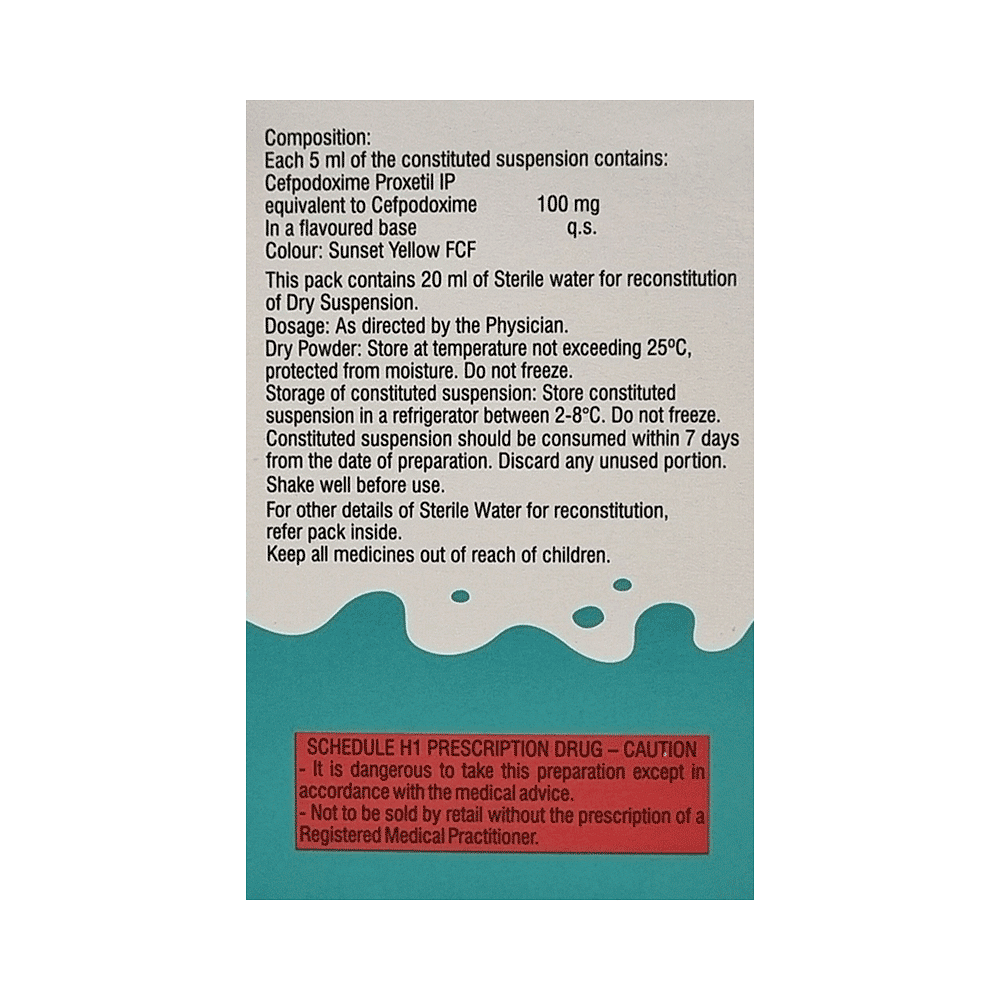
Cepodem 100 Dry Suspension
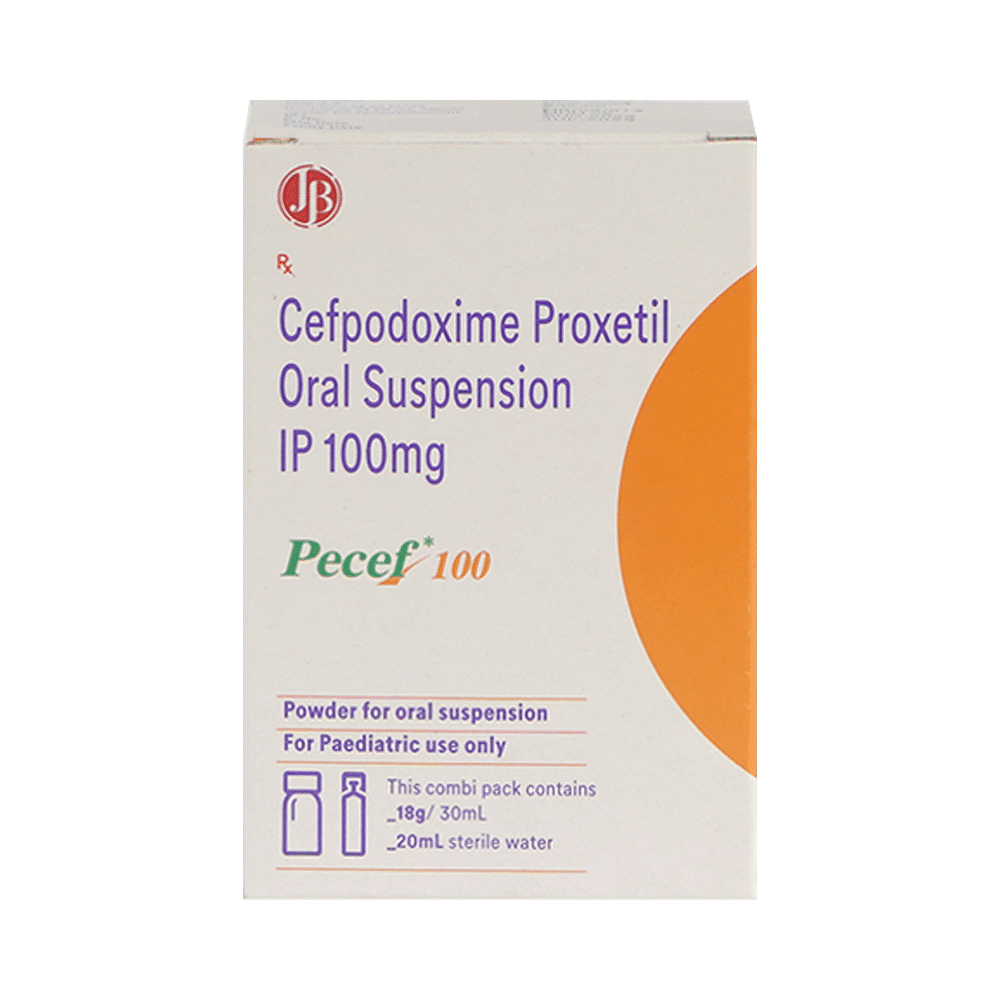
Pecef 100 Powder For Oral Suspension
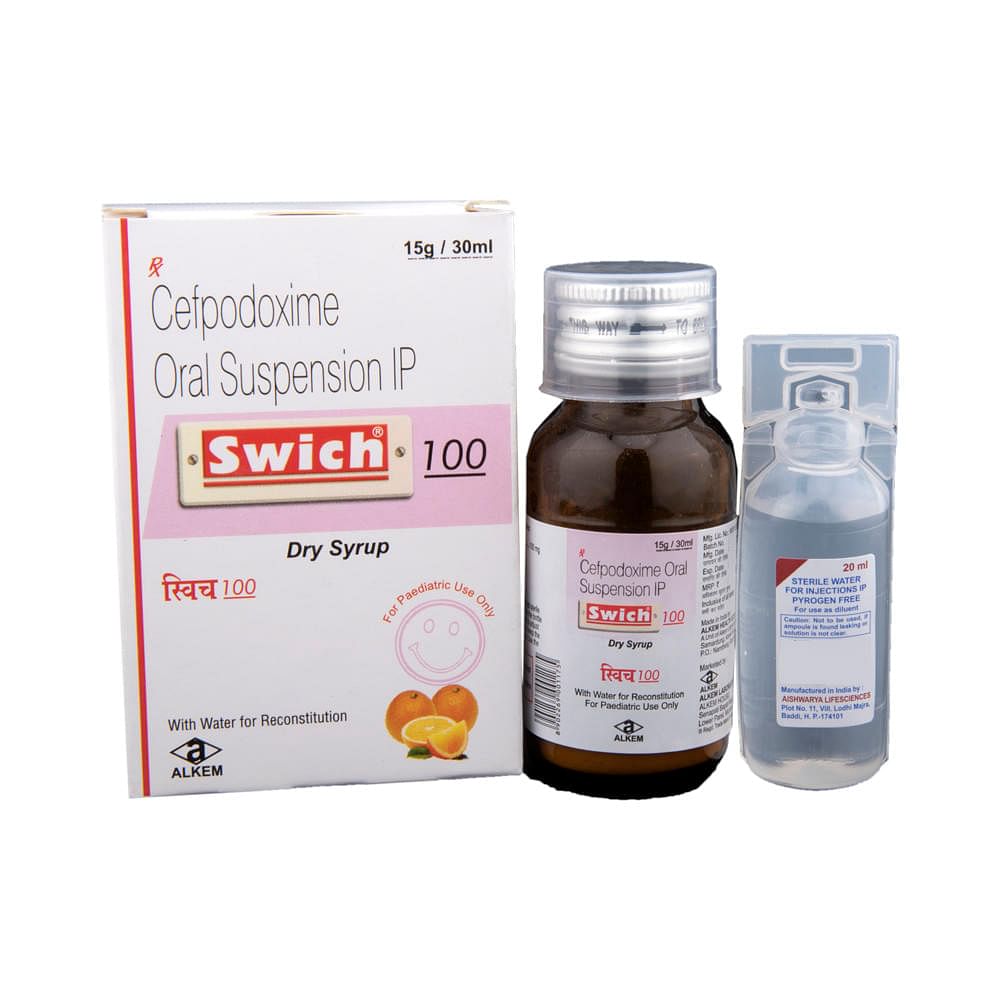
Swich 100 Dry Syrup

Ferpod 100 Oral Suspension
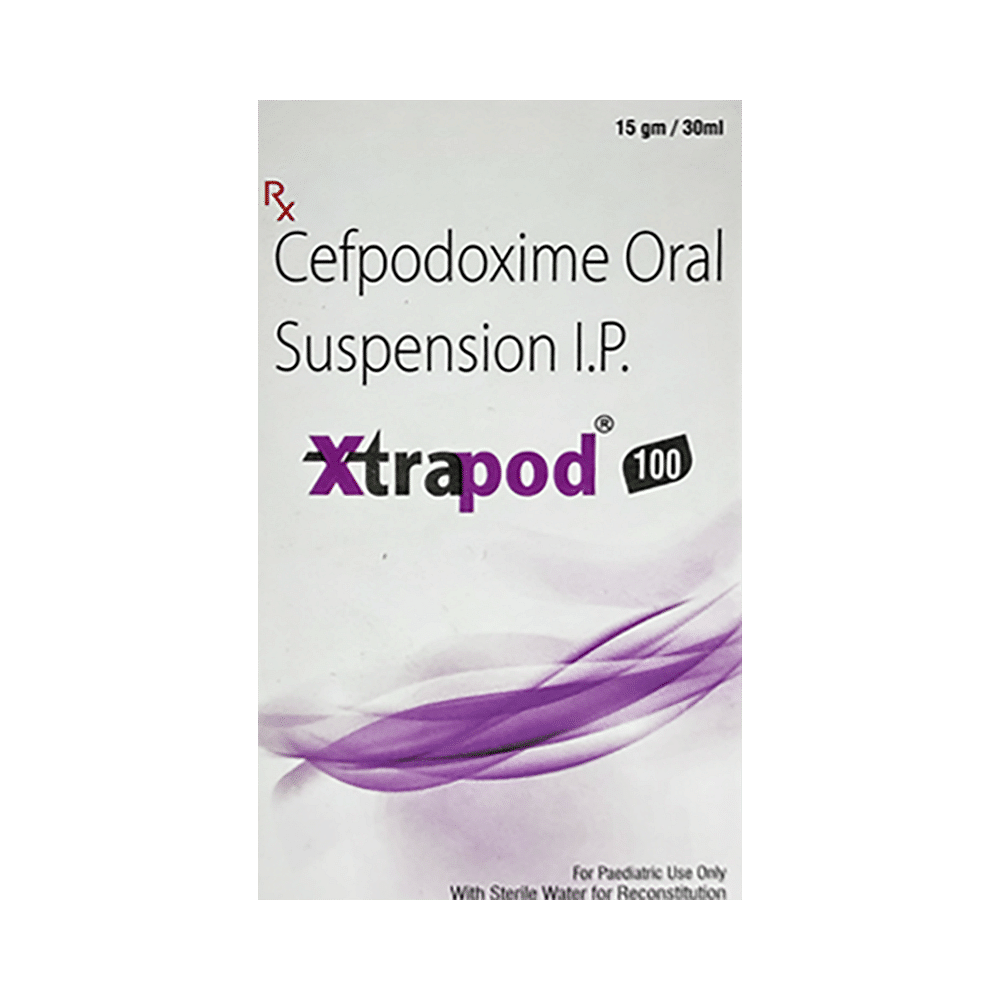
Xtrapod 100 Oral Suspension

Sofidoxim DS Oral Suspension

Snudicef 100 Dry Syrup
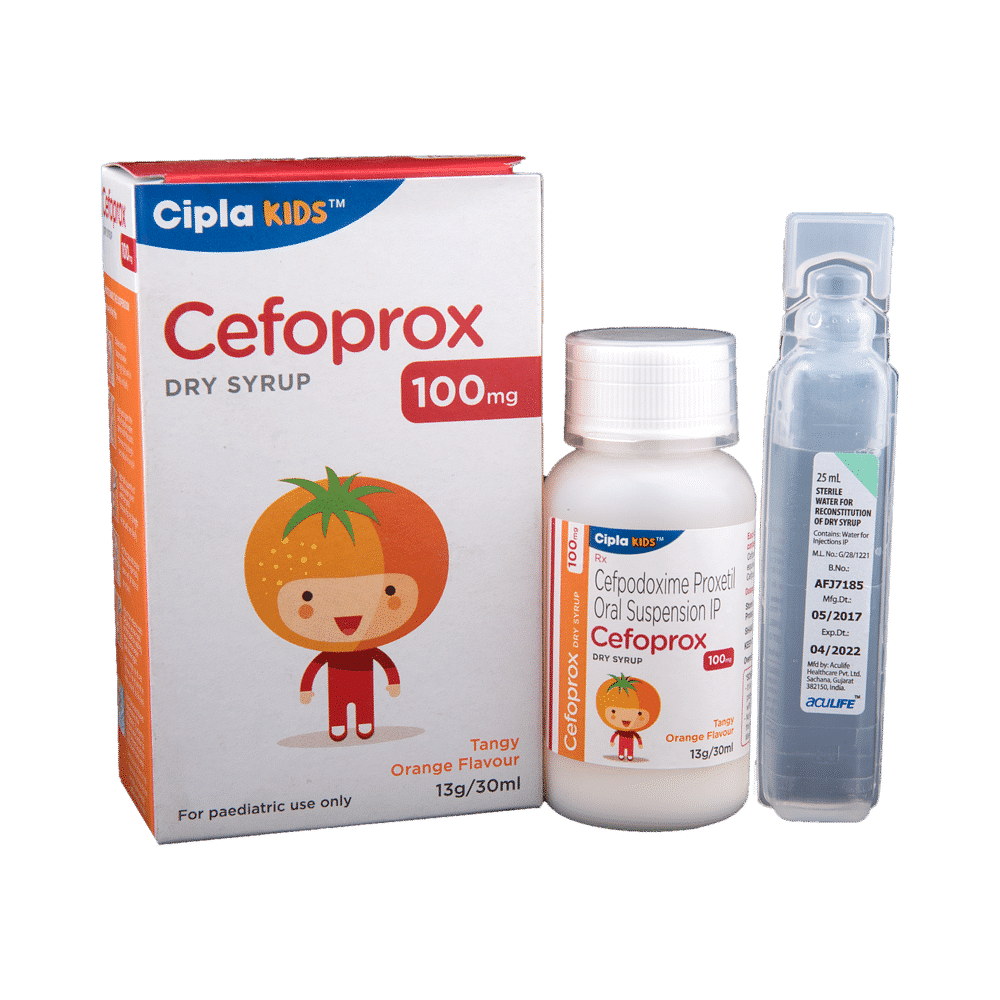
Cefoprox 100mg Dry Syrup

Cezipod 100 Oral Suspension

Spnpod 100 Dry Syrup
Frequently asked questions
What if I give too much of Dalwopod 100 Dry Syrup by mistake?
Giving more than the prescribed dose of Dalwopod 100 Dry Syrup is unlikely to be harmful. However, if you believe your child might have ingested an excessive amount, contact a doctor immediately. This will help prevent unwanted side effects and could potentially exacerbate their condition.
Are there any possible serious side effects of Dalwopod 100 Dry Syrup?
Some potential serious side effects of this medicine include persistent vomiting, kidney damage, allergic reactions, diarrhea, and severe gastrointestinal infections. Always consult your child's doctor in case these or any other adverse reactions occur.
Can other medicines be given at the same time as Dalwopod 100 Dry Syrup?
It is important to discuss with your child's doctor before administering any other medications alongside Dalwopod 100 Dry Syrup. The interaction between these medications can vary, and consultation with a medical professional will ensure safe dosage adjustments or alternative treatments if necessary.
Can I get my child vaccinated while on treatment with Dalwopod 100 Dry Syrup?
Antibiotics are generally not known to interfere with vaccines. However, some exceptions may exist in cases of severe infections or prolonged illnesses. Always consult your doctor before administering any vaccination during active treatment with Dalwopod 100 Dry Syrup.
Which lab tests may my child undergo while taking Dalwopod 100 Dry Syrup on a long-term basis?
A healthcare professional may advise periodic kidney function and liver function tests to monitor your child's condition closely during prolonged treatment with Dalwopod 100 Dry Syrup.
The mucus coming out of my child’s nose is yellow-green. Is it a sign of a bacterial infection?
Yellow or green mucus in the nose does not necessarily indicate a bacterial infection, especially during a common cold. During these periods, mucus often thickens and changes color, but that doesn't always signify a bacterial infection.
My child is having a sore throat and ear infection. Can I give antibiotics?
No. Most sore throats and ear infections are caused by viruses. Antibiotics are not the correct treatment for viral infections, and giving them can be ineffective or even harmful.
Does a common cold caused by viruses always result in a secondary bacterial infection? When to start an antibiotic to prevent infection?
In most cases, bacterial infections do not follow viral infections. Using antibiotics for a virus is unnecessary and can be detrimental to your child's health. Consult with a healthcare professional for proper advice and treatment of any potential bacterial infections.
Can Dalwopod 100 Dry Syrup impact my child’s digestive system?
Children often experience stomach upset when taking antibiotics, due to the disruption of their natural gut bacteria. Dalwopod 100 Dry Syrup can also contribute to this issue, potentially causing a negative reaction or exacerbating existing issues.
Can Dalwopod 100 Dry Syrup lead to bacterial resistance in my child?
Yes. Irregular antibiotic usage, frequent prescription, and misuse of Dalwopod 100 Dry Syrup can contribute to the development of drug-resistant bacteria. These resistant strains become less susceptible to antibiotics, leading to more challenging infections that require stronger medications.


